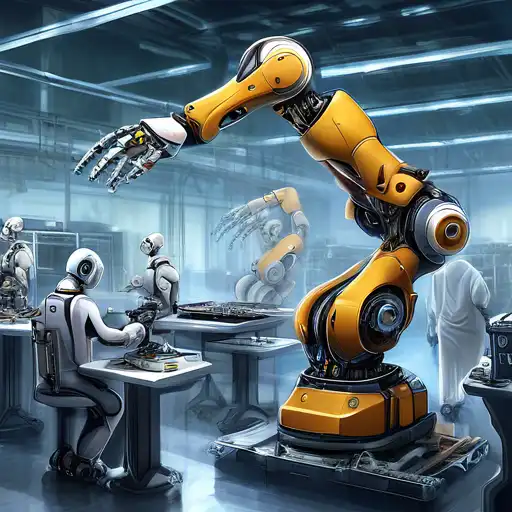The Revolutionary Impact of Robotics on Modern Manufacturing
In the heart of the industrial revolution, the introduction of robotics into manufacturing processes has marked a pivotal shift towards efficiency, precision, and scalability. This transformation is not just about replacing human labor but enhancing capabilities, reducing errors, and opening new avenues for innovation.
Understanding the Role of Robotics in Manufacturing
Robotics in manufacturing refers to the use of automated machines that can perform tasks with high precision and minimal human intervention. These robots are designed to handle repetitive tasks, complex assembly lines, and even delicate operations that require a level of accuracy beyond human capability.
Key Benefits of Robotics in Manufacturing
- Increased Efficiency: Robots can operate 24/7 without fatigue, significantly boosting production rates.
- Enhanced Precision: With advanced sensors and programming, robots achieve unparalleled accuracy in tasks.
- Cost Reduction: Over time, robotics can reduce labor costs and minimize waste through precise operations.
- Safety Improvements: Robots can take over dangerous tasks, reducing workplace injuries.
Real-World Applications of Robotics in Manufacturing
From automotive assembly lines to electronics manufacturing, robotics has found its place across various sectors. For instance, in the automotive industry, robots are used for welding, painting, and assembly, ensuring consistency and quality. In electronics, they handle delicate components with precision, reducing the risk of damage.
Challenges and Considerations
Despite the benefits, integrating robotics into manufacturing comes with its set of challenges. High initial investment costs, the need for skilled personnel to operate and maintain robots, and concerns over job displacement are significant considerations for businesses.
The Future of Robotics in Manufacturing
The future looks promising with advancements in AI and machine learning enabling robots to make decisions and learn from their environment. This evolution will further enhance their capabilities, making manufacturing processes even more efficient and innovative.
As we continue to explore the potential of robotics in manufacturing, it's clear that this technology is not just transforming how we produce goods but also shaping the future of the industry. For more insights into the latest trends in manufacturing technology, check out our technology trends section.
